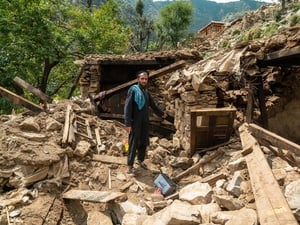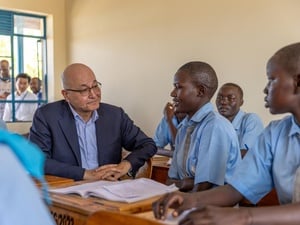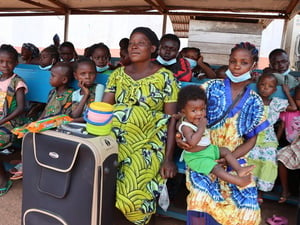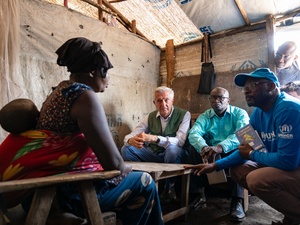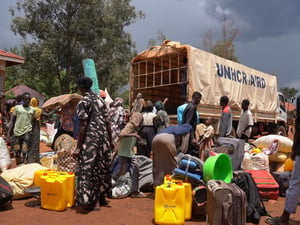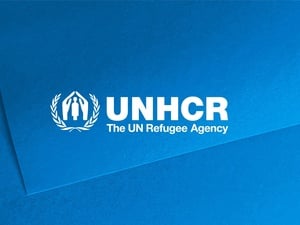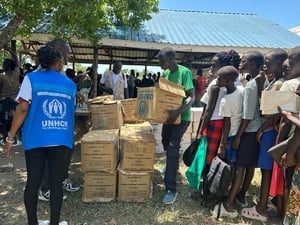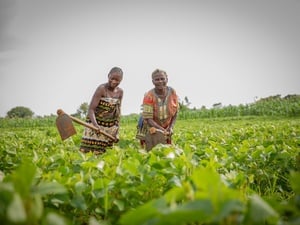DRC: Big increase in returns from Tanzania as school year ends in camps
DRC: Big increase in returns from Tanzania as school year ends in camps
Now that the school year has ended in refugee camps in western Tanzania, we are seeing a dramatic increase in the number of Congolese refugees returning on their own - without our assistance - to the South Kivu region of the Democratic Republic of the Congo (DRC). Whereas the number returning home so far this year had not exceeded 1,100 per month - and in some months was as few as 368 - last week we received more than 200 returnees in just two days. Returning refugees tell us they waited for their children to finish the school year in the camps in Tanzania and now they want to get home and register their children for schools in DRC. They also say that now, during the dry season, is a good time to rebuild their homes, most of which were destroyed in fighting since 1996. Another factor is that they want to register to vote in upcoming national elections as part of the transition to full democracy in DRC. There are 153,000 Congolese in refugee camps in Tanzania.
The return of so many in recent days in such difficult circumstances is both an expression of faith in the nascent peace in a long-unstable region, and also a result of unfortunate cuts in assistance in the camps in Tanzania. Refugees pay the captains of overloaded, barely seaworthy open wooden boats $10 per person for the 15-hour journey from Tanzania across Lake Tanganyika to beaches and ports on the Congolese side, such as Uvira and Baraka. Once they arrive in DRC, we are working with local NGOs to take them home to their villages, despite the fact that we do not encourage them to return to eastern DRC at this time.
The increasing number of what we call spontaneous returns has opened the question within UNHCR of whether we should move to what is called facilitated return. Under that description, we would still not view circumstances in the eastern DRC as conducive to return, and would not encourage refugees to leave their countries of asylum. But we would help those who insist on going back by running our own boats, ports and trucks. This issue is still under review.
At the end of last week, we moved our biggest convoy yet of spontaneous returnees - five trucks carrying 213 people, half of them children - which dropped them off in villages along the road from Uvira to Fizi, 131 km south of Uvira. Our colleagues on the ground tell us the fact that whole families are coming home together is proof that they intend to stay in DRC, and are not just testing the waters.
The returnees were greeted by ecstatic crowds all along the route, who shouted, clapped, danced and sang as they were reunited with friends and family they had not seen in up to nine years. Fizi Territory, in the southern part of South Kivu, was the frontline in several wars since 1996, and has suffered extreme destruction. In some villages there is barely a house intact, but the returnees were immediately taken in by former neighbours and relatives.


